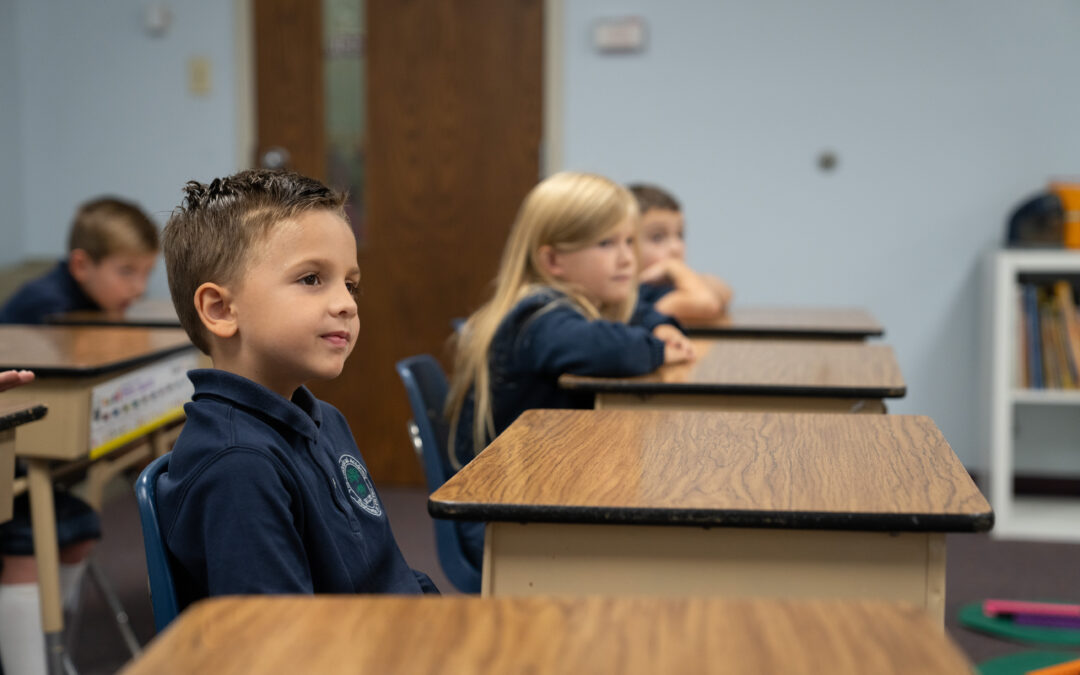“What about FRIENDS?!?!”
“What about socialization?”Socialization and “weirdness.” It’s the age old criticism about non-traditional school models (including hybrid schools, home educating, dual enrollment, etc). As many families of non-traditional students find, people suddenly become very concerned about your child’s socio-emotional well-being as soon as you go against the grain of traditional education. How many times have you heard well-meaning family and friends try to convince you to enroll in full-time school over the sole issue of friends?!
Guest writer: Thoughts from a university-schedule parent:
“School is one part of life. Historically, school has been one part of life. But today, education in its formal setting has reached further and further into young students’ lives with every passing decade. We aren’t denying the fact that children want to have friends and camaraderie with peers. We as adults long to have friends and people we walk life with. We aren’t denying the fact that sometimes there’s a place for a formal school setting.
We are, however, denying the idea that if kids don’t attend 35-40 hours of traditional, formal schooling they will be unsocialized, weird, and have no friends.
As proponents of non-traditional schooling, and homeschooling, we want our kids to be life-long learners who don’t limit learning to 8 hours of the traditional school day. We want our kids to see that there’s a time and place for sitting down and accomplishing academics, but we also want them to see that this is only one form of learning, one part of life. All of life is an opportunity to learn and grow.
What About Socialization?
When people hear that our children attend a non-traditional school, many respond as if they are being denied the most wonderful, rewarding, and enriching relationships by not making them privy to daily interactions with their peers…and by peers, I mean, twenty-five other kids their exact same ages.
No, this does not mean we don’t value “same age friends.” We absolutely do! The majority of our children’s friends are their ages. But we don’t feel like 5 days a week, for 7- 8 hour days with 25 other kids in their same age category is necessary. We don’t believe this is where “socialization” occurs (or at least the kind of socialization we are looking for).
The dictionary defines socialization as “a continuing process whereby an individual acquires a personal identity and learns the norms, values, behavior, and social skills. appropriate to his or her social position.” No offense, but I prefer my kids not learn the norms, values, behaviors, and social skills appropriate for his age from 25 other seven year olds as equally immature as my seven year old. He has more than enough immaturity all on his own! Sure there is a teacher. But realistically, the influence is more heavily the other kids than the teacher.
Cramming twenty-five 7 year olds in a room together for 8 hours a day, does not magically impart a specific desired level of social etiquette to one another. Not very many real life social boundaries are established due to the examples set by children who have not yet mastered social boundaries themselves. This does not mean we chose a non-traditional schooling model in order to shield our children from the influence of others. It’s simply trying to point out why the socialization/what about friends argument people use isn’t very valid.
Instead of satisfying our son’s love of people with 25 other kids his same exact age, for 35-40 hours a week, we have found an incredible balance in the university-schedule setting. Our son spends two days a week with same age peers in a classroom environment and we have the other days of the week to live a social life that more closely mirrors “real life.” We prefer to give our kids several good friends their age as well as continued contact and relationships with people of all ages, as well as growing deep friendships with their siblings, and our non-traditional schooling approach allows us time to do this very thing. Our children see this lifestyle modeled from my husband and I as we have and highly value friendships across varying age groups. Isn’t that what socialization is all about? Being able to interact and function in numerous social settings?
What About Being Weird?
Another common critique of non-traditional school choices are comments about kids dressing weird, being socially awkward, not being able to hold a normal conversation, and not being “street smart.” While I have met non-traditional school students and homeschoolers who fall into those stereotypes, I’ve also found many public and private schooled students who fall into these stereotypes. However, over the last decade I have grown to understand that these issues have less and less to do with a method of schooling and more to do with the parents.
Being Socially Awkward
I have known many awkward public, private and homeschooled children. One of these forms of education is not the remedy to the issue. Whenever I have met a socially awkward child, I have noticed the parents are too. The parents have an awkward way about them that has influenced that child’s personality and way of interacting. If the child is homeschooled then yes, they will have been more influenced by their parent’s ways simply because of being around them so much…the good and the awkward (notice I did not say bad). But a child who is in public or private school does not escape this influence…that is not the cure.
Dressing Weird
I do know many non-traditional students, homeschooled students, and full-time private and public school students, of all different ages, and once again, the dressing of the child is a direct influence of the parent’s style and preferences. I would say in general that many of the homeschooled parents I know have convictions of modesty. They do not care as much that their child is wearing name brands and the trendiest style out there…so in that way, are they weird? Maybe. If so, who cares? I love that weirdness. If the child is wearing a dress to their toes and bonnet with purposely outdated attire…this might be because of the mindset of the parent having an unhealthy view that this is more spiritual. Or, it could simply be their style and their influence in this manner, not homeschooling or non-traditional schooling.
My two kids are often in thrift shop finds with a slight hippy or vintage look. My daughter specifically almost always has an old scarf in her hair, with some kind of a raga muffin eclectic look. That is because that is a style we like as their parents. That is why they are dressed like that, not because they don’t attend school 35-40 hours a week. If someone thinks they are dressed “weird”, so be it, but it’s not because they are educated outside the traditional full-time school week and would be dressed differently if they were not.
Not Street Smart
It all depends on what someone means by this as to what my thoughts are. If someone means that a child is awkward because they are not aware of current music and shows, they don’t know the lyrics to the hottest teenage pop artist, they are clueless on name brand clothing, and have never heard of certain sex or bathroom humor…then PRAISE GOD they are awkward!! That is a naivety I wish more children knew and did not embrace as “cool” or a necessity to not being awkward. As they grow and mature into their high school years and on into adult life, they can watch what they enjoy and have liberty to do so through their matured, fully grown adult mind and conscience. For now, we gradually give them more and more choices and responsibilities as they grow and mature.
This is something that we as parents long to protect. If our children are awkward because of that then that is because of our personal convictions on these topics that we enforce in our home, not because they are educated at a university-schedule school or at home. I hope we are raising the types of children who will not get older and feel neglected because they were not exposed to these topics and content at an age determined by their peers. Even if they are, that is a risk we are willing to take, wishing good for our children based on Biblical principles.
If someone means a child is nervous around adults, children of different ages or races because they have purposely been unexposed to them then I think there is room for criticism. If the child knows nothing of evil, death, crime or a need to protect those they love, then I also think there is room for criticism. Of course this is all exposed to the degree of age and maturity, but these topics of life and the reality of the world need to be taught to our children. Appropriately protecting our children is one thing, trying to shelter them from any form of displeasure or ugliness is not wise. They need to know how to live in this world and know how to handle it well and in good character. We have to prepare them for these things and the scriptures give us great wisdom on how to think about these things.
In general I think people need to look to the parents as liable for their children’s worldview, dress and way of interacting instead of the manner in which they are schooled. What influence has the parent been, or what influence has the parent allowed their child to be exposed to, in order to form their current state of awkwardness or lack thereof.
I pray we as parents grow more aware of our responsibility in the thinking and growth of our children. Whether it’s our direct influence or the influences we subject them to. Our influence is huge…even down to their style of dress and what they know and don’t know that is going on in the world. I am not saying that a parent who sends their child to full-time public or private school does not understand this. I am simply saying that whether your child is educated at home or public or private school, or at a non-traditional school, we as the parents are responsible for our children and helping them form a solid and Biblical worldview. For us, this means protecting them where we think necessary and providing a methodology to have them achieve this until they are old enough and mature enough to measure these for themselves. However, these issues of being weird, unsocial, or awkward is not from one specific mode of education and it’s also not remedied by a specific mode of education.
By God’s grace and wisdom, He gave us His word to help us know what to think about this world and our place in it. “All Scripture is given by inspiration of God, and is profitable for doctrine, for reproof, for correction, for instruction in righteousness, that the man of God may be complete, thoroughly equipped for every good work.”
2 Timothy 3:16
If you’d like to be a guest blogger on The Classical Academy blog, please contact us via the contact form. We love to hear from our families, staff, and local community!


